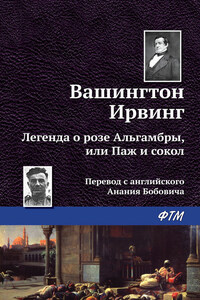Mr. Theodore Irving, in his valuable history of the "Conquest of Florida," speaking of the astonishing achievements of the Spanish Cavaliers, in the dawn of the sixteenth century says:
"Of all the enterprises undertaken in this spirit of daring adventure, none has surpassed, for hardihood and variety of incident, that of the renowned Hernando de Soto, and his band of cavaliers. It was poetry put in action. It was the knight-errantry of the old world carried into the depths of the American wilderness. Indeed the personal adventures, the feats of individual prowess, the picturesque description of steel-clad cavaliers, with lance and helm and prancing steed, glittering through the wildernesses of Florida, Georgia, Alabama, and the prairies of the Far West, would seem to us mere fictions of romance, did they not come to us recorded in matter of fact narratives of contemporaries, and corroborated by minute and daily memoranda of eye-witnesses."
These are the wild and wondrous adventures which I wish here to record. I have spared no pains in obtaining the most accurate information which the records of those days have transmitted to us. It is as wrong to traduce the dead as the living. If one should be careful not to write a line which dying he would wish to blot, he should also endeavor to write of the departed in so candid and paternal a spirit, while severely just to the truth of history, as to be safe from reproach. One who is aiding to form public opinion respecting another, who has left the world, should remember that he may yet meet the departed in the spirit land. And he may perhaps be greeted with the words, "Your condemnation was too severe. You did not make due allowance for the times in which I lived. You have held up my name to unmerited reproach."
Careful investigation has revealed De Soto to me as by no means so bad a man as I had supposed him to have been. And I think that the candid reader will admit that there was much, in his heroic but melancholy career, which calls for charitable construction and sympathy.
The authorities upon which I have mainly relied for my statements, are given in the body of the work. There is no country on the globe, whose early history is so full of interest and instruction as our own. The writer feels grateful to the press, in general, for the kindly spirit in which it has spoken of the attempt, in this series, to interest the popular reader in those remarkable incidents which have led to the establishment of this majestic republic.
CHAPTER I
Childhood and Youth
Birthplace of Ferdinand De Soto. – Spanish Colony at Darien. – Don Pedro de Avila, Governor of Darien. – Vasco Nuñez. – Famine. – Love in the Spanish Castle. – Character of Isabella. – Embarrassment of De Soto. – Isabella's Parting Counsel.
In the interior of Spain, about one hundred and thirty miles southwest of Madrid, there is the small walled town of Xeres. It is remote from all great routes of travel, and contains about nine thousand inhabitants, living very frugally, and in a state of primitive simplicity. There are several rude castles of the ancient nobility here, and numerous gloomy, monastic institutions. In one of these dilapidated castles, there was born, in the year 1500, a boy, who received the name of Ferdinand de Soto. His parents were Spanish nobles, perhaps the most haughty class of nobility which has ever existed. It was, however, a decayed family, so impoverished as to find it difficult to maintain the position of gentility. The parents were not able to give their son a liberal education. Their rank did not allow them to introduce him to any of the pursuits of industry; and so far as can now be learned, the years of his early youth were spent in idleness.
Ferdinand was an unusually handsome boy. He grew up tall, well formed, and with remarkable muscular strength and agility. He greatly excelled in fencing, horseback riding, and all those manly exercises which were then deemed far more essential for a Spanish gentleman than literary culture. He was fearless, energetic, self-reliant; and it was manifest that he was endowed with mental powers of much native strength.
When quite a lad he attracted the attention of a wealthy Spanish nobleman, Don Pedro de Avila, who sent him to one of the Spanish universities, probably that of Saragossa, and maintained him there for six years. Literary culture was not then in high repute; but it was deemed a matter of very great moment that a nobleman of Spain should excel in horsemanship, in fencing, and in wielding every weapon of attack or defence.
Ferdinand became quite renowned for his lofty bearing, and for all chivalric accomplishments. At the tournaments, and similar displays of martial prowess then in vogue, he was prominent, exciting the envy of competitive cavaliers, and winning the admiration of the ladies.
Don Pedro became very proud of his foster son, received him to his family, and treated him as though he were his own child. The Spanish court had at that time established a very important colony at the province of Darien, on the Isthmus of Panama. This isthmus, connecting North and South America, is about three hundred miles long and from forty to sixty broad. A stupendous range of mountains runs along its centre, apparently reared as an eternal barrier between the Atlantic and Pacific oceans. From several of the summits of this ridge the waters of the two oceans can at the same time be distinctly seen. Here the Spanish court, in pursuit of its energetic but cruel conquest of America, had established one of its most merciless colonies. There was gold among the mountains. The natives had many golden ornaments. They had no conception of the value of the precious ore in civilized lands. Readily they would exchange quite large masses of gold for a few glass beads. The great object of the Spaniards in the conquest of Darien was to obtain gold. They inferred that if the ignorant natives, without any acquaintance with the arts, had obtained so much, there must be immense quantities which careful searching and skilful mining would reveal.














